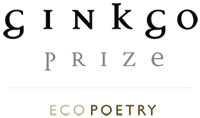Because I grew up here, the grind of my bones in the sand,
boats jiggling from jetties like strings of charms.
Because my grandparents, great uncle, great grandfather
were drawn here, carrying picnics and sleeping bags
and built a railway during the war that I was told very little
about, except we were entitled to a better bungalow
in the Easter holidays – I knew only the holiday island
and nothing of the original name, Wadjemup,
place across the water where the spirits are, nothing
of the hellish jail, even though we were the first
to hire the warden’s watchhouse the summer
my four-year-old foot was mangled by a bike wheel.
Perhaps I sensed we stood in blood where men captured
from across Australia were chained by the neck.
Because craggy rocks split skin, bluebottles stung,
stonefish lurked in the shallows and I wore seaweed
like a wreath for the extinct hermit crabs and starfish,
the undersized lobsters, the blown-up reefs, the hundreds
of graves we didn’t know we camped on, and fried fresh herring.
Because we survived category five Tropical Cyclone Alby
when all the other boats left after the radio warning
while we were wrapped in towels and blankets on the soaking beach
as our boat, its little dry cabin, swung in the fit of weather,
yanking on the rocks piled up on five anchors dug into sand.
Because I know my luck, my loneliness, my privilege.
Because the rare marsupials that are common here
no one remembers once covered the mainland too
before the whites came who said the land had no history.
Because this island holds my adolescent rites of passage
though I never had a rites of passage but far from the mainland
I stumbled into the inky blur of it and kissed an older boy
from Bunbury, rough, cigarette-smoking and nameless.
And because one winter here, years later, I slipped between
breaths and drowned in intense pleasure I’m not supposed to have.
Because I survived many youth-crash-and-burns, leavings
and returnings, my mainland face fading as the ferries headed home.
Oh, the solace of arriving on solid ground with sea nausea,
learning to walk again on swaying ground! Because
taking the plane is the coward’s way and I want to live
eye to eye, shore to shore, take in the whole expanse.
Because I know this land, this sea more deeply, more nakedly
than any other where wind blew through slotted bungalows
as we slept in sticky sea air, sun-wind-sea battered, salt hissing
on hot skin, resisting showering. Because I wear it
as it wears me. I honour this Island, this place of transition between
the physical and spiritual as my body, my touchstone.
Footnote:
Rottnest Island, just off the coast from Perth, Western Australia, was named by the first white explorer, a Dutchman. He thought the small wallabies looked like rats, hence the name is a derivative of ‘rat’s nest’. The original name for this island by the Indigenous Whadjuk Noongar people is Wadjemup. The text in italics in the poem is taken from the Rottnest Island website (most likely an Indigenous source, but the source isn’t stated). Indigenous men, often senior men in their communities, were isolated, imprisoned and treated appallingly on the island for almost a hundred years – essentially as prisoners of war. Until recently, this history was erased and the island was known only as a holiday island. Reconciliation is ongoing. I pay my respects to the Traditional Owners of the island, past, present and future and all the Indigenous men who were imprisoned and died there.
Cath Drake is from Perth (Boorloo), Australia and now lives in London, UK. Her debut collection, The Shaking City (Seren Books, 2020) was longlisted in The Laurel Prize and highly commended in the UK Forward Prize.It was described by Philip Gross as ‘a guide to staying clear-eyed, combative and caring in unsettling times’. It followed Sleeping with Rivers, a Poetry Book Society Choice & winner of the Seren/Mslexia poetry pamphlet prize. Cath has been published widely in anthologies and literary journals in UK, Ireland, US and Australia, most recently in the Best Australian Poems 2022 anthology, Plumwood Mountain Journal and The Weekend Australian. She has been short-listed for the Venture, Bridport, and Manchester Poetry prizes and previously received a second place and commended in the Ginkgo Prize. An Environmental Science graduate, Cath worked for a decade as an environmental scientist, writer, and journalist in Australia before moving to London. She won awards for her environmental nonfiction writing and broadcasting. Cath is a mindfulness teacher who highlights mindfulness appreciation of nature and poetry. She hosts The Verandah, quality online poetry events, including ongoing ‘The Climate of Change’ workshops that encourage deeper investigation and fresh expressions on positive change. www.cathdrake.com

